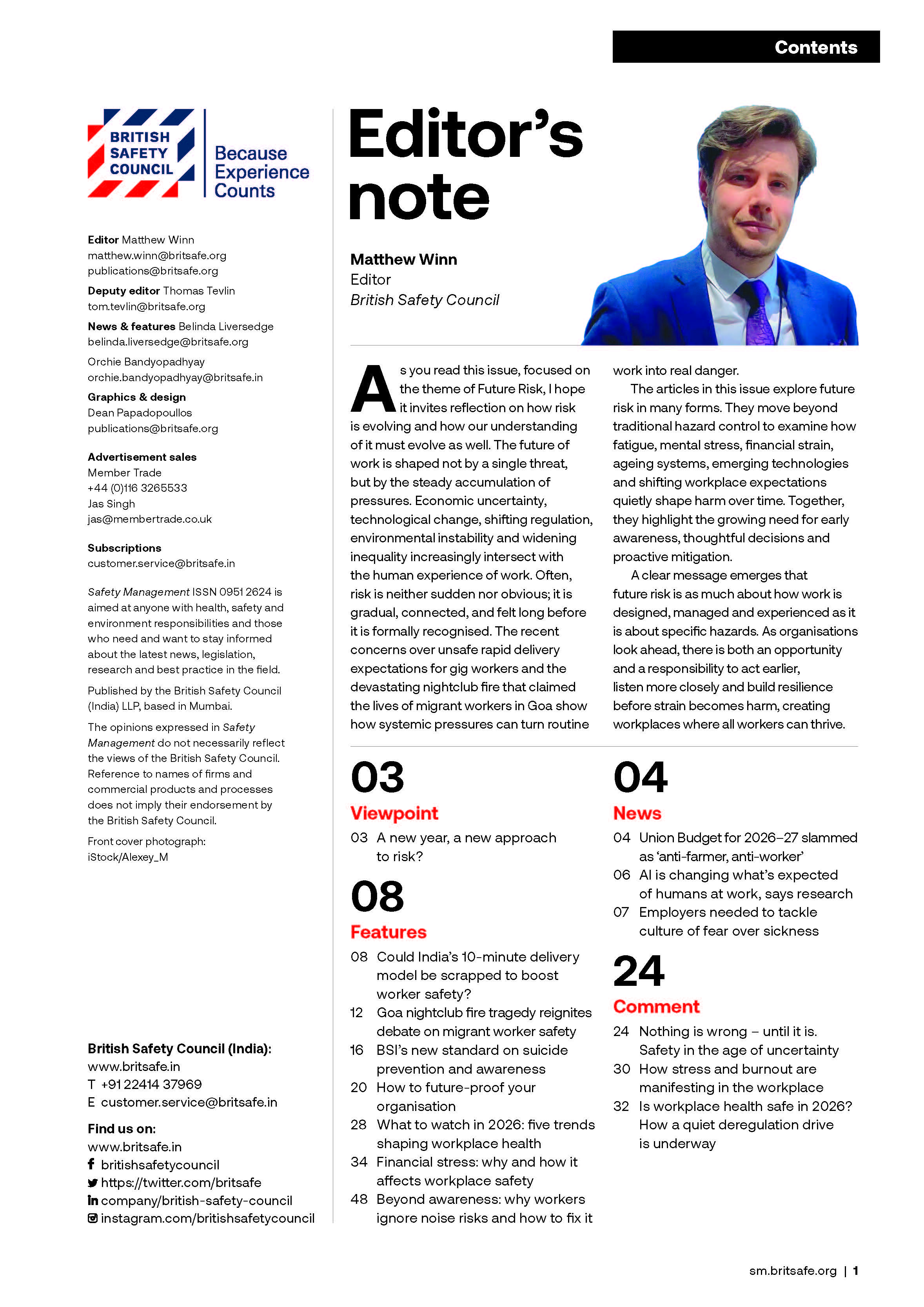The working conditions and social security rights of app-based platform workers were in the public spotlight once again recently, after hundreds of Hyderabad-based delivery workers engaged by the e-commerce platform Zepto held a lengthy strike in protest over alleged problems such as unsafe working conditions, drastically reduced pay rates and a lack of employment redressal procedures.
News
Strike by app-based workers in Hyderabad highlights ongoing battle for better work rights
The strike was organised by the Telangana Gig and Platform Workers’ Union (TGPWU), which wrote to Telangana state government’s Department of Labour, calling for the state to take action over alleged “exploitative practices” by the ‘quick-commerce’ platform, which enables customers to order items such as food and electronic goods for delivery to their homes.
In a letter jointly addressed to the Additional Commissioner of Labour at the Government of Telangana and Zepto CEO Aadit Palicha, the union claimed that despite playing a crucial role in the local, app-based home delivery system and economy, workers engaged by Zepto continue to be denied basic labour protections.
The union claimed that workers collecting goods from Zepto’s so-called ‘dark stores’ - warehouses without branding for the goods that are stored on-site ready for delivery to customers’ homes - do not have access to restrooms or clean drinking water.
Workers have also alleged that they are required to meet extreme delivery deadlines, which force them to take risks on the road. “The 10-15 minute delivery deadlines force workers to drive at unsafe speeds, increasing the risk of road accidents. Speed is prioritised over safety,” stated the TGPWU’s letter.
The union also claimed that the pay rates offered by Zepto have been cut, with workers now earning approximately Rs 10-15 per delivery, compared to an earlier rate of around Rs 35 per delivery. They further allege that workers are at risk of arbitrary fines for alleged failures to complete their work to a standard deemed suitable by Zepto, penalties for poor customer ratings and account suspensions, often without any transparency over how these decisions were reached by the company or a right to appeal.

The TGPWU adds that people engaged to work for Zepto do have access to, or a right to, social security schemes and benefits, including the Employees’ State Insurance (ESI) Scheme, which offers financial and medical benefits in case of sickness, maternity, disablement, and death, health insurance or any form of accident insurance to cover the costs of medical treatment or loss of earnings in the event of incidents like serious traffic accidents.
The union urged Telegana’s Labour Department to conduct inspections of Zepto’s operations in the state, and take action to ensure Zepto complies with minimum wage rules. The TGPWU also called for a tripartite meeting involving the Labour Separtment, Zepto management and the union to resolve the workers’ grievances.
Growing disquiet
The strike and formal complaint by the TGPWU highlight growing disquiet over the treatment of gig workers across India. Labour rights commentators say that as digital platforms scale rapidly, their workers remain stuck in a legal grey zone, often excluded from labour rights and social protections.
However, commentators say that the Union and State Governments are finally beginning to enact legal and policy changes that will provide some social security benefits and related protections for both gig and app-based workers.
In a landmark move, gig workers will soon be covered by the Employees’ Provident Fund Organisation (EPFO) and Employees’ State Insurance Corporation (ESIC) schemes, granting them access to certain social security benefits for the first time. Under the plan, which was announced by the Union Government in the Spring 2025 Budget and is expected to be finalised in the near future, gig workers will be able to register on e-Shram, India’s national online database that enables unorganised sector workers to apply for social security benefits, in order to access pension benefits. The pensions will be funded by a levy on each customer payment received by platform-based companies and aggregators, at a figure yet to be decided, as well as contributions from gig workers themselves.
In addition, gig workers will have access to public health insurance under the PM Jan Arogya Yojana scheme, or ‘PM-JAY’ (Ayushman Bharat Pradhan Mantri Jan Arogya Yojana, or Prime Minister’s People’s Health Scheme). This provides free health insurance coverage for low-income earners, covering the cost of medical and hospital treatment up to Rs 5 lakh per year for every eligible family.
Aggregators urged to register workers
In September 2024, the Union Government urged all aggregators to register gig and platform workers into the e-Shram portal, so that these workers could register for the forthcoming pension and health insurance benefits. The government estimates that, in total, the changes will bring around 10 million informal gig workers under the scope of the pension and healthcare insurance schemes,
In addition, several state governments are also taking legal measures to expand social security benefits to gig and platform workers.
In May 2025, the Congress-led Telangana state government published a draft bill, entitled The Telangana Gig and Platform Workers (Registration, Social Security and Welfare) Bill, 2025 to both provide social security benefits for and regulate the working conditions of gig workers. The bill proposes a ‘Gig and Platform Workers Social Security and Welfare Fund’, which will be financed by the state government and the aggregators.
The bill stipulates timely wage payments and safe working conditions. Also, aggregators must give valid reasons and seven days’ notice before terminating a gig worker’s services. The bill was published just weeks after Rahul Gandhi, the Congress Party leader and Leader of the Opposition in the Lok Sabha, described the conditions of gig workers as “modern day slavery” during a Parliamentary debate.
Telangana’s move follows Rajasthan’s pioneering step in 2023, when the then Congress Government headed by Ashok Gehlot became the first in India to pass a Bill aimed at providing social security benefits to gig workers.
Also, the neighbouring state of Karnataka recently passed a law to create a welfare fund to fund social security benefits for app and platform-based workers and to place certain new legal obligations on aggregators operating in Karnataka state. Under the legal change, a cess, or tax, will be levied on all customer transactions on app platforms – such as food delivery and taxi apps Swiggy, Zomato, Amazon, Ola and Uber – to create a welfare and social security fund to pay benefits to gig workers engaged by the apps.
The Karnataka state government has now set up a working group to determine the level of the cess aggregators will have to collect and pay to fund the workers’ social security benefits.
According to media reports, the group comprises representatives from platforms, think tanks, technocrats and tech companies. Although the exact rate is yet to be finalised, it has been reported that the cess will be set at a 1-5 per cent charge per transaction on the app platforms.
NEWS


Union Budget for 2026–27 slammed as ‘anti-farmer, anti-worker’
By Orchie Bandyopadhyay on 13 February 2026
The Union Government’s claim its 2026–27 Budget will improve the lives of the “poor, underprivileged and the disadvantaged” has been met with sharp criticism, with opposition parties claiming the announced measures fail to tackle deep-rooted problems such as youth unemployment, falling standards of living in the agricultural community, and inadequate salaries for key public health workers.




